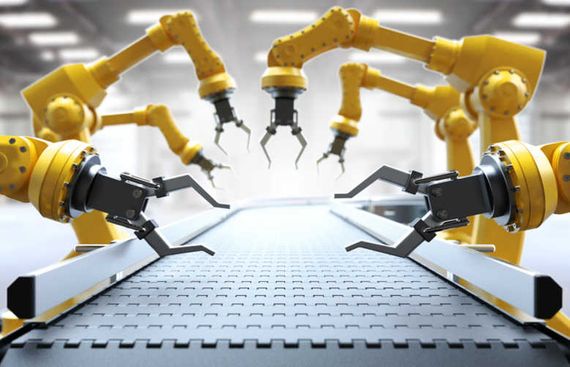Tampere University & VTT to Lead Robotisation of SMEs with a Total Funding of EUR 32 Million

The TRINITY project coordinated by the University of Tampere and the DIH2 coordinated by VTT help SMEs in robotisation by providing them with new technical and standardised solutions, tailored training and access to Europe-wide competence networks. The projects enable digitisation of SMEs by means of cost-efficient robotics solutions for short production runs.
The electronics industry, automotive industry and other long-run production have been benefitting the most from robotics for a long time. In smaller companies, robotisation has not become as common at a similar pace. They often consider traditional industrial robotics too inflexible and difficult to apply to short-run production. Behind such thinking lie the out-dated conceptions of the performance of robotics and its adaptability to changes in production. Recently, the willingness to make investments has also been affected by the lack of competent employees.
“The goal is to keep the European SMEs at the forefront of global competition by bringing each one in the circle of digital revolution. This will fast track to more production and jobs in Europe”, says Ali Muhammad, DIH2 Project coordinator, VTT.
“Flexible and efficiently used robotics is one of the methods by which Europe will be able to keep the manufacture and, consequently, the jobs on the continent,” says Minna Lanz, Mechanical Engineering Professor & Project Coordinator, University of Tampere.
Both projects last four years and offer R&D funding for application trials of individual companies. A total of EUR 16 million of funding will be channelled through projects based on open application.
In collaboration with the project consortium, the TRINITY project will present almost 20 advanced manufacturing applications for the needs of SMEs. In the project, the University of Tampere will focus on human-robot collaboration in the manufacturing industry. In the future, human-robot collaboration will be needed particularly in the manufacturing of short-run products of high quality.
The DIH2project is a pan-European network of agile production and robotics. For companies, the DIH2consortium offers expertise and support for agile production challenges, including technologies, investments, standardisation, know-how and competences, as well as ethics, data and cyber security.
Read more news:
B-group vitamins beneficial for psychotic patients: Study
Edutech firm Byju's buys US-based Osmo for $120 mn


.jpg)
